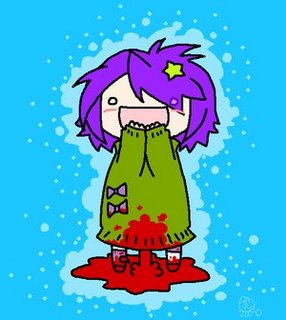Menstruation

Menstruation is the shedding of the lining of the uterus (endometrium) accompanied by bleeding. It occurs in approximately monthly cycles except during pregnancy and after menopause. Menstruation marks the reproductive years of a woman's life, from the start of menstruation (menarche) during puberty until its cessation (menopause (see Menopause: Introduction).
By definition, the first day of bleeding is counted as the beginning of each menstrual cycle (day 1). The cycle ends just before the next menstrual period. Menstrual cycles range from about 21 to 40 days. Only 10 to 15% of women have cycles that are exactly 28 days. The intervals between periods are usually longest in the years immediately after menarche and before menopause.
The menstrual cycle is regulated by hormones: luteinizing hormone and follicle-stimulating hormone, which are produced by the pituitary gland, and estrogen and progesterone, which are produced by the ovaries. The cycle has three phases: follicular, ovulatory, and luteal


0 Comments:
Post a Comment
<< Home